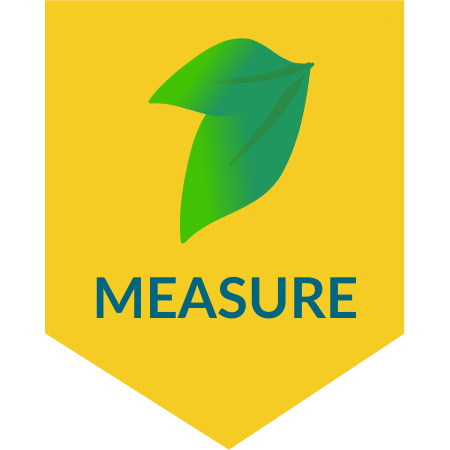ESG SIG Questionnaire
The Shared Assessments ESG SIG (Standardized Information Gathering Questionnaire) gives insight into how third parties are managing ESG Risks by allowing practitioners to perform Environmental Social and Governance (ESG) due diligence on third-party services and vendors.

ESG Standardized Information Gathering (SIG) Questionnaire
The ESG SIG focuses on metrics relevant to an organization’s key stakeholders (who increasingly evaluate organizational performance against ESG criteria): investors, employees, customers, competitors, and regulators.
The ESG SIG contains questions and controls about ESG policies, environmental management, human rights, supply chain risk management, performance metrics, and reporting. These questions and controls identify risk issues and opportunities for process improvements
Identify Risk. ESG SIG questions and corresponding controls are designed to help identify risks. This supports operational process improvements: results from assessments can be incorporated into benchmarking measures and continuous monitoring of ESG Risks.
Define Roles and Responsibilities. Using the ESG SIG will help you to delineate roles and responsibilities to support ESG board reporting and other operational processes for an organization and its service providers.
Who Is It For?
The ESG SIG is meant for any organization seeking to understand ESG Risks across their supply chain. From those new to risk management to senior risk managers and the C-Suite, the Shared Assessments ESG SIG Questionnaire assists users of all levels.
Key Benefits
The ESG SIG allows you to:
- Ensure Third Parties Align With Your ESG Standards and Requirements
- Execute Efficient Assessments of Vendor ESG Risks
- Streamline Regulatory Compliance
- Assemble Data For Shareholder Returns
24 Regulations, Frameworks and Standards
Users may scope assessments for any four of twenty-four regulations, standards, and frameworks.
Regulations, Frameworks and Standards mapped to by the ESG SIG include:

American Renewable Energy Act of 2021, Utilities Act 2000
Clean Air Act 1963
Dodd-Frank Act 2010
EPA Greenhouse Gas Reporting Program 2009 (U.S.) (GHGRP)
Fair Labor Standards Act 1938
Federal Acquisition Regulation
Food and Drug Administration (FDA), Current Good Manufacturing Practice (CGMP)
ISO 14001:2015 Environmental management systems
ISO 45001:2018 Occupational health and safety systems
ISO 50001:2018 Energy management systems
The Industrial Employments (Standing Orders) Act, 1946
UK Modern Slavery Act 2015
FDA Labeling Requirements, EU legal requirements
Occupational Safety and Health Administration (OSHA) Standards, EU directives, or other jurisdictional standards
EU Non-Financial Reporting Directive (April 2021)
Global Reporting Initiative (GRI) Consolidated Version (June 30, 2022)
Science Based Targets initiative CET-PRO 003 / Version 3.0 (November 2022)
Task Force on Climate-related Financial Disclosures (April 2022)
UN Global Compact 2019
UN Guiding Principles (UNGPs) on Business and Human Rights 2019
UN Principles for Responsible Investment (PRI) (November 2022)
Walker Guidelines for Disclosure and Transparency in Private Equity
World Economic Forum (WEF) Stakeholder Capitalism Metrics
.
What’s Included In The ESG SIG Questionnaire?
After purchasing the ESG SIG, you’ll be able to immediately download six files. Let our team of experts show you how to implement the ESG SIG into your third-party risk program.
ESG SIG Manager
Enables the scoping and configuration of SIG questionnaires.
ESG SCA
A set of resources (solutions, templates, checklists, guidelines) that can be used to plan, scope, and perform ESG risk assessments.
ESG SIG User Procedure guide
A summary of the action steps to create, analyze and manage ESG SIG questionnaires.
ESG Authoritative Sources Reference
Description of the Regulations, Frameworks and Standards mapped to by the ESG SIG.
ESG Key Terms And Definitions
A summary of key terms and definitions encountered in ESG Risk.
ESG Memorandum
Product intro message and background.
Select From 18 Attributes
Users of the ESG SIG can readily select questions to evaluate their suppliers on ESG principles by Domain, Category or Attribute. Categories are Environmental – Social – Governance and are comprised of the following Attributes:
Environmental
- Environmental Management
- Climate Change
- Air Pollution
- Hazardous & Toxic Material Management
- Natural Resource Management & Use
- Waste Management
- Regulatory Compliance
- Pollution Prevention & Cleaner Production
Social
- Worker Health & Safety
- Human Rights & Labor Practices
- Regulatory Compliance – Social
- Community Involvement
- Consumer Safety & Product Safety
Governance
- Board Structure, Independence & Accountability
- Ethics & Codes of Conduct
- ESG Management Practices & Processes
- Supply Chain Management
- Data Privacy, Security & Management
How The ESG SIG Was Made
Responding to the increasing relevance of Environmental, Social, and Governance (ESG) for TPRM practitioners around the globe, Shared Assessments launched an ESG Team in 2022.
We actively recruited knowledgeable SMEs, including those with specific UK and EU experience, and welcomed all TPRM practitioners interested in defining how ESG fits into the risk framework. This group has helped Shared Assessments members to identify metrics, improve SIG questionnaires, and develop best practices from an ESG standpoint.
The team, since its inception last year, has developed a dedicated ESG Domain within the Standardized Information Gathering (SIG) Assessment Questionnaire and is proud to introduce the standalone Environmental, Social, and Governance SIG.
